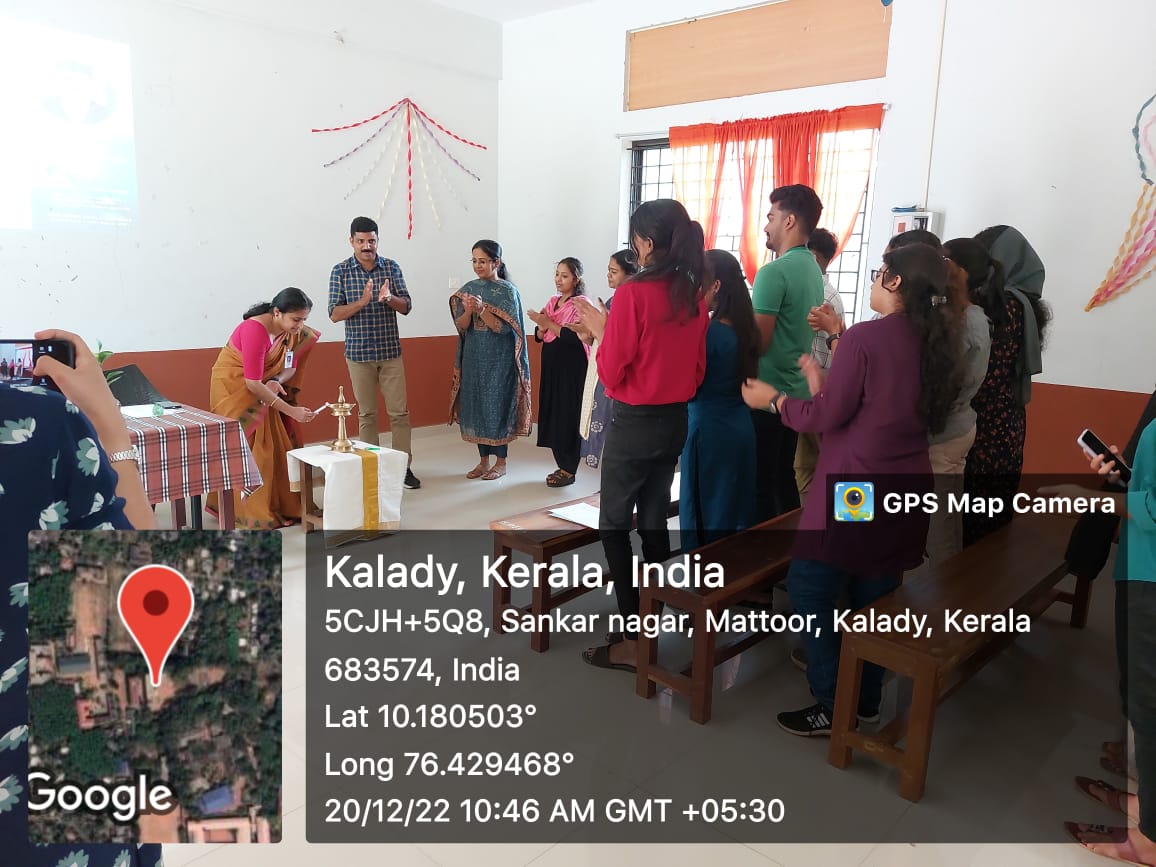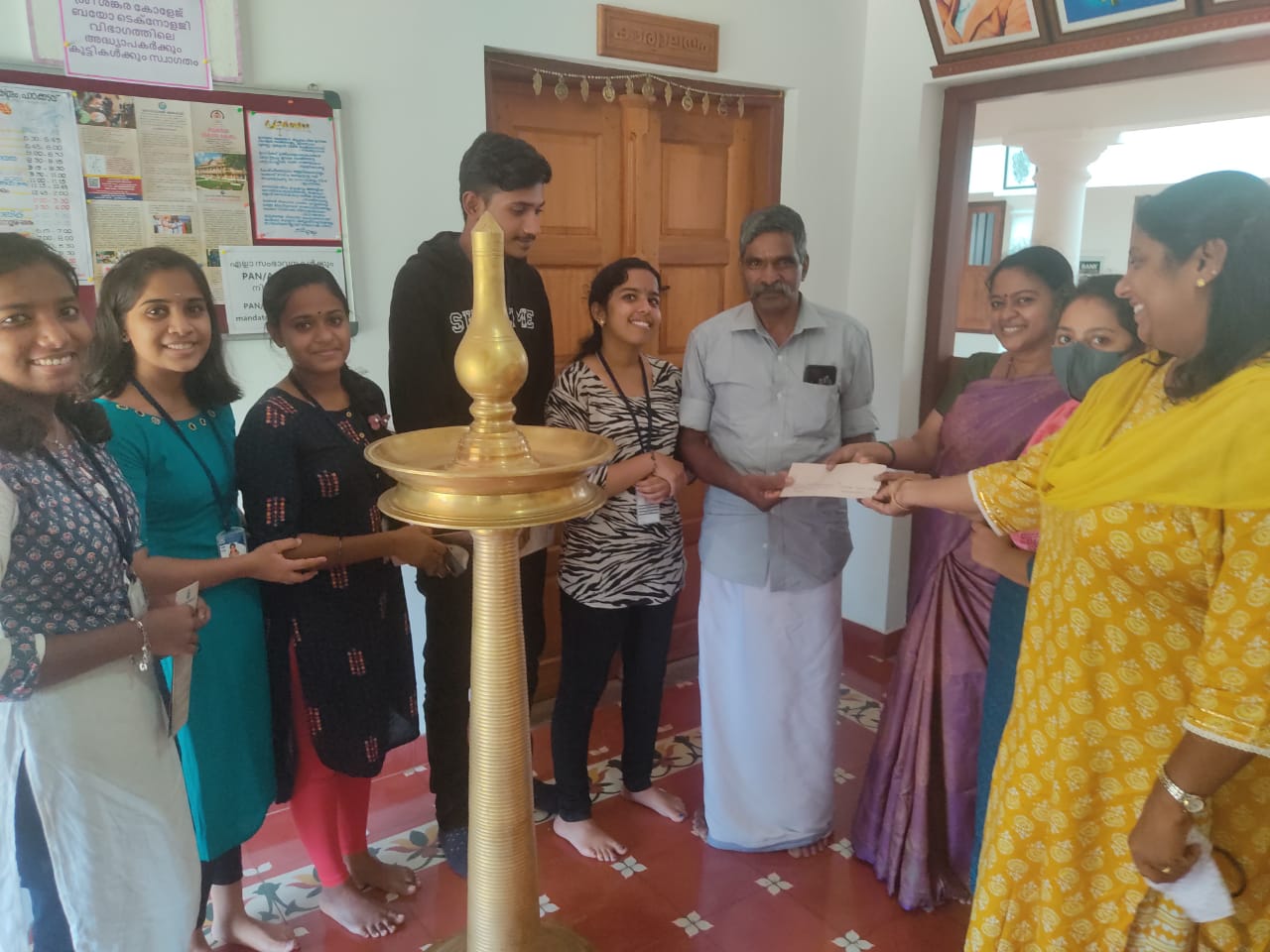Department Profile
ABOUT THE DEPARTMENT
The Department of Biotechnology at Sree Sankara College, established in 2005, is a vibrant interdisciplinary centre for scientific education and innovation. Initially offering self-financed undergraduate programmes, the department has consistently focused on leveraging biotechnology to address critical challenges in healthcare, agriculture, environmental conservation, and beyond.
Currently, the department offers two undergraduate programmes: B.Sc. in Biotechnology and B.Sc. (Honours) in Biotechnology under the Four-Year Undergraduate Programme (FYUGP) framework. These programmes are designed to provide students with a robust foundation of theoretical knowledge and practical skills. Plans are also underway to introduce a postgraduate programme, opening new avenues for advanced specialization and pioneering research.
Programme Highlights
The B.Sc. The biotechnology programme combines lectures, hands-on laboratory training, and research projects to provide a comprehensive learning experience. Core topics include Molecular Biology, Animal Biotechnology, Cell Biology, r-DNA Technology, Enzymology, Immunology, Bioinformatics, and Biophysics. Students acquire expertise in cutting-edge techniques such as PCR, gel electrophoresis, DNA sequencing, and bioinformatics analysis. The curriculum culminates in a capstone research project, equipping students with critical problem-solving and analytical skills essential for scientific inquiry and innovation.
Eligibility Criteria and Admission Process
Eligibility Requirements
- Academic Qualifications: Candidates must have obtained their academic qualifications from a recognized board or university.
- Stream Requirement: Admission is open to students who have completed their studies in the science stream, with prior education focused on science-related subjects.
Admission and Seat Allotment:
- Merit Quota: Admission and seat allotment under the merit quota are administered by Mahatma Gandhi University, Kottayam.
- Centralized Allotment Process (CAP): The university follows the Centralized Allotment Process (CAP) to streamline admissions. CAP ensures a fair and merit-based allocation of seats for various courses, making the admission process transparent and efficient.
Unlocking Boundless Horizons: Career Opportunities After B.Sc Biotechnology
B.Sc in Biotechnology opens up a wide range of career opportunities across both public and private sectors. Graduates can pursue roles such as Research Scientist, Biotechnologist, or Biomedical Scientist, making significant contributions to advancements in healthcare, agriculture, and environmental sustainability. There are also opportunities in Quality Control, Clinical Research, and Regulatory Affairs within pharmaceutical and biotech industries, ensuring product quality and compliance with industry standards.
Specialized careers like Bioinformatics Specialist offer expertise in data analysis for genomics, while roles in Sales and Marketing focus on promoting cutting-edge biotech products. Graduates may also venture into Education, Entrepreneurship, or Environmental Biotechnology, contributing to sustainable practices. Scientific Writers and Consultants can provide valuable communication and strategic expertise to businesses and organizations.
For those aiming for advanced positions, pursuing an M.Sc or PhD further enhances career prospects, particularly in research and academia. The biotechnology field’s rapid growth provides a wealth of opportunities across industries.
Career Opportunities after B.Sc Biotechnology:
- Research Scientist: Conduct experiments, develop new products, and contribute to breakthroughs in genetics, molecular biology, and cell biology.
- Biotechnologist: Work in industries like pharmaceuticals, food processing, and agriculture, improving products and processes.
- Quality Control Analyst: Ensure products meet industry standards and regulatory requirements in pharmaceutical and food sectors.
- Clinical Research Associate (CRA): Manage clinical trials, ensuring compliance with regulatory guidelines, primarily in pharmaceutical and healthcare fields.
- Biomedical Scientist: Diagnose diseases and perform tests in hospital laboratories, playing a vital role in patient care.
- Bioinformatics Specialist: Analyze biological data using computational tools, contributing to research in genomics and proteomics.
- Sales and Marketing Professional: Promote biotech products to businesses and healthcare providers, helping expand the market for innovative solutions.
- Regulatory Affairs Specialist: Ensure that biotech products comply with government regulations and industry standards, guiding companies through regulatory processes.
- Entrepreneur: Launch a biotech-related startup or innovative products, focusing on biopharmaceuticals, agriculture, or environmental solutions.
- Teaching and Education: Become a lecturer or teacher in academic institutions, advancing to roles in higher education and research organizations.
- Scientific Writer or Communicator: Translate complex scientific concepts into accessible content for non-experts, in fields like journalism, technical writing, or industry communication.
- Environmental Biotechnologist: Address environmental challenges such as waste management, pollution control, and sustainable agriculture using biotechnology.
- Biotechnology Consultant: Offer expert advice on biotech projects and business strategies, helping organizations solve industry-specific challenges.






